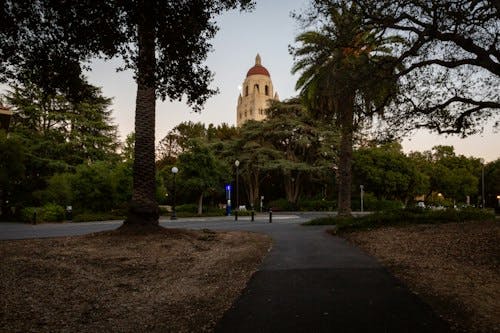Sharing My Stanford Historical Moment Essay
Kate Sliunkova
AdmitYogi, Stanford MBA & MA in Education
·
·
4 min read
A few days ago, I thought I would revisit some of the essays that got me into Stanford University. I’ll start with some of the shorter supplemental essays, and if you all find this type of analysis helpful, let me know and I’ll post more of these!
What historical moment or event do you wish you could have witnessed? (50) words.
Croatoan.
That’s the only word left behind by a group of over one hundred Roanoke colonists before they vanished forever. Why?
I’d love to explore American history’s greatest mystery and determine the fate of the fabled Lost Colony. Did they vanish through assimilation, disease, war—or something else altogether?
Out of Stanford’s fifty-word supplementals, this one took me the longest to tackle. I struggled to think of a unique answer to a historical event that I’d love to visit. Sure, seeing the Big Bang or the era of dinosaurs would be amazing, but it’s been beaten to death. Each year, I would wager Stanford gets thousands of answers from just those two options alone. So, unless you find an incredibly creative and refreshing way to justify why you’d like to see an event like that, I’d suggest avoiding responses such as the Big Bang or the Jurassic Era at all costs.
The other thing I was cognizant of as I wrote this essay was accessibility. A lot of people answer that they would witness some event in the past 50 years, like a competitive sports game or the unveiling of a brand new product. However, these events were, in all likelihood, broadcasted. If you really cared about Game 6 of the 1998 NBA Finals, you could easily find it online. It’s accessible.
That’s why I made sure my event was something that wasn’t televised.
From there, I needed to build intrigue, which is why I start my essay with only one line & one word: _croatoan. _It’s not a word that means anything (at least, in English or other modern languages), and it leaves the reader itching to find more.
I then try to carry that momentum with me as I explain what the word means, before ending the second line with a question: why? Through this, I’m hoping to delineate my thought process to the reader and put them in my shoes. I’m trying to convey how I think and how curiosity is a core value I orient my personality around.
Finally, I tie it all together, directly answering Stanford’s prompt and suggesting that there are multiple ways the Roanoke Colony could’ve disappeared. This again leaves the essay on a note of intrigue, and I tried to make it highlight how I’m a curious thinker.
When you’re approaching this essay yourself, there are a few principles & questions I’d suggest keeping in mind (take with a grain of salt):
-
Make sure the event you care about wasn’t televised (or if it was, you better have a strong reason why the in-person experience is still 100x more magical than the televised version)
-
Make sure the event is not a super common answer; unless you can very effectively justify picking a common event, stick with something more obscure to highlight the depth and breadth of your knowledge.
-
Try to make sure your essay conveys some type of value you hold. Maybe that’s curiosity, connection, etc. At any rate, it needs to come across clearly in your essay.
Best of luck, and if you enjoy this kind of analysis, just know that our site offers access to countless other successful essays and application profiles — not just from Stanford, but other selective institutions in the world. It’s incredibly affordable and informative, and you also get to view other key data points, like demographic information, test scores & GPA, and resumes. Check it out!
Read applications
Read the essays, activities, and awards that got them in. Read one for free!

Gavin
Yale (+21 colleges)

Stanford Student
Stanford (+12 colleges)

Arjan Kohli
Yale (+15 colleges)
Related articles
A Breakdown of Harvard's Admissions Lawsuit
A few years ago, Harvard University was sued by Asian-American applicants for alleged bias in their affirmative action policies. In the wake of this lawsuit, the storied institution was forced to disclose some of their admissions practices. While I’m not here to pick a side in this matter, I did want to analyze what this lawsuit reveals about how Harvard accepts or denies applicants.

